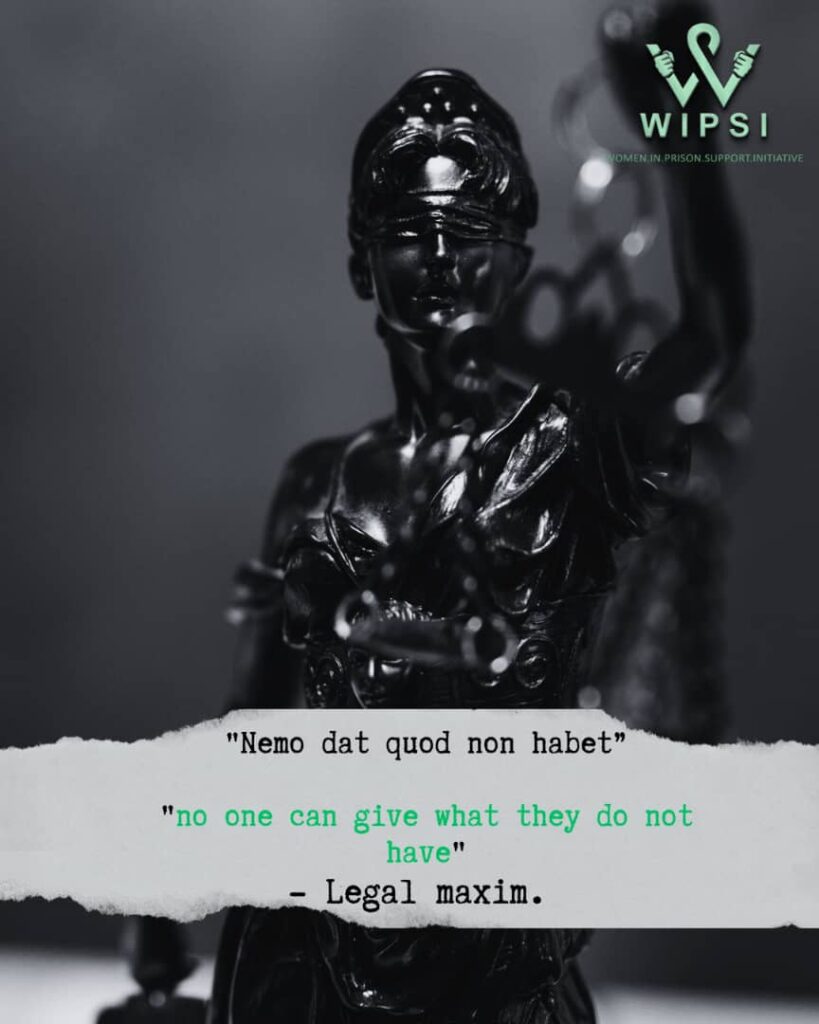This age-old principle of law goes as far back as Roman times, where property ownership was seen as sacred. It’s summed up in the Latin maxim nemo dat quod non habet — “no one can give what they do not have.” Simply put, if someone doesn’t own a thing, they can’t legally transfer ownership of it to you.
One of the most famous illustrations of this principle is the case of Hollins v. Fowler (1875). Fowler was the true owner of a quantity of cotton. A rogue middleman wrongfully sold the cotton to Hollins, who paid in good faith, believing the seller had the right to sell. The House of Lords ruled that Hollins acquired no ownership at all because the seller had no title to pass on.

The implication?
Hollins lost everything. The rogue walked away with his money, yet Hollins never legally owned the cotton and had no claim to it. The true owner (Fowler) was still entitled to reclaim his property.
In Cundy v. Lindsay (1878), a fraudster posing as a reputable company ordered handkerchiefs on credit, sold them to an innocent buyer, and disappeared. The court held that the buyer had no title, so the goods had to be returned to the original owner, leaving the buyer without goods and without money.
Fast-forward to today, and the nemo dat rule still causes devastating consequences in commerce. In Shogun Finance Ltd v. Hudson (2003), a fraudster bought a car on credit using a stolen identity and sold it to an unsuspecting buyer. The buyer lost both the car and the money because the original contract was void — the fraudster never had ownership to transfer.
In modern shipping cases, companies have lost millions of dollars paying for goods that never legally belonged to the seller. Even when the buyer acts honestly and fulfils their part, the law says: if the seller had no title, the buyer gets nothing.
This principle doesn’t only apply to large commercial transactions. It extends to personal goods like phones, laptops, and other gadgets. If the person who sold the item to you was not the rightful owner, you may not only lose the property — you could also face serious legal trouble.
In Nigeria, there have been cases where people unknowingly bought stolen devices, only to be arrested when the items were traced. Even seemingly minor goods that might otherwise be “winked at” can land you in serious problems, especially where a criminal report has been made. In such cases, what might begin as a civil matter can quickly escalate into a criminal case.
At WIPSI, we have seen a number of these situations: innocent buyers who thought they were simply getting a good bargain, but who ended up facing arrest because the goods turned out to be stolen. The harsh reality is that the law often prioritises the rights of the true owner — and the suspicion of possession can shift the burden onto the unsuspecting buyer.
The nemo dat rule teaches a hard truth: if they never owned it, neither will you. Protect yourself before making any purchase:
✅ Ask for proof of ownership (receipts, signed title documents, warranty cards).
✅ Verify the seller’s right to sell the goods — especially with high-value items like cars, land, or electronics.
✅ Check IMEI numbers and property records where applicable.
✅ Be suspicious of deals that seem too cheap, too rushed, or offered under unusual circumstances.
Whether it’s cotton, cars, or cell phones, the law is clear — you cannot acquire better title than the seller has. Knowing your rights and asking the right questions could save you from losing both your money and your freedom.

